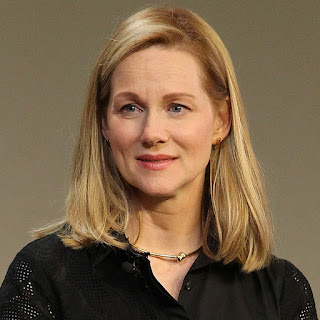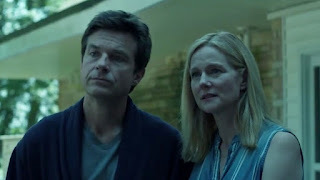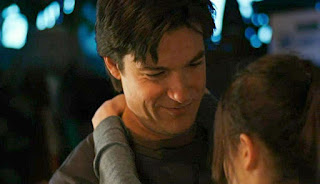The poorest half of Americans—the much-discussed but largely powerless US working class—are in the strongest financial position in a generation. The bottom 50%, generally households with net worth of $166,000 or less before the pandemic, now hold a bigger share of the nation’s wealth than they’ve had for 20 years, the Federal Reserve estimates. Their collective net worth, $3.73 trillion, has almost doubled in two years and is more than 10 times higher than in 2011, the nadir after the last recession. The improvement is a result of trillions of dollars in Covid-19 relief and a strong labor market that remains hottest for the lowest-income workers. “For the first time since the late 1990s, low-wage workers are gaining ground compared to other workers,” says Columbia University economics professor Suresh Naidu. “If we’re able to have tight labor markets for another year or so, you can imagine a lot of low-wage workers in previously dead-end jobs are going to be able to break into something new—saving, relocating, going to school, and opening up a path into the middle class.” An analysis of Fed data shows the average household in the bottom 50% saw its net worth rise to $57,346 at the end of 2021, from $30,378 at the end of 2019. The number of job postings requiring “minimal” qualifications has surged 53% since early 2020, according to a real-time tracker created by Harvard’s Opportunity Insights. The trend accelerated through the first several months of 2022.
The intense competition for so-called unskilled labor has pushed up pay: Wages have risen the most for the bottom quarter of the workforce, 6.4% in the 12 months through April, according to Atlanta Fed data, almost three points more than for the best-paid quartile. The inflation spike after the Ukraine invasion ate up many recent gains, but at the bottom of the wage scale, pay has been rising faster than prices. An inflation-adjusted measure of income by the University of California at Berkeley’s Realtime Inequality site shows the bottom 50%’s pay climbing at an annualized rate of 3.4% in the first quarter of 2022 even as other groups lost ground. Source: bloomberg.com
Ozark creator Chris Mundy details what the future looks like for Marty and the rest of the Byrde family, 5 years after the events of the finale. Mundy explains that he thinks the Byrde family will have moved out of the Ozarks and gone to the Midwest, where they will continue to use their political influence, but now on a national scale: "The Byrdes run to the Midwest, and in some ways, they're going to have the political clout to dictate national politics." Although Mundy's explanation is short on details, it's very clear the Byrdes remain a family unit and they continue to exert influence on the political stage. It remains to be seen whether Ozark will ever return, either as a movie, or revival series, but Mundy's explanation is sure to be interesting to fans of the show looking to know what's next for the Byrde family. Fortunately, Mundy's explanation does leave plenty of room for the characters to return in some form, making clear that the Byrdes aren't finished blazing new trails and likely making a few enemies in the process.
Also, Mundy felt the final moment of the popular Netflix drama was, to him, “pretty unambiguous.” While some fans believe young Jonah (Skylar Gaertner), son of lakeside kingpins Marty and Wendy Byrde (Jason Bateman and Laura Linney), shot down the cookie jar full of incriminating evidence, Mundy said “No, I think he shot Mel [the cop], and Mel is dead. And I think they went to their crematorium, just off screen.” Playfully throwing in his interpretation of the ending, Jason Bateman, who also directed the final episode, said the gun the young man was holding “was probably a buckshot too, so the cookie jar went down as well. There’s a lot of scattering.” Source: indiewire.com
Ozark actress Julia Garner has been offered the role of Madonna in a forthcoming biopic about the pop icon, sources familiar with the project told Variety. Garner has emerged the favorite from over a dozen candidates, one insider added, and has for months been speculated as a frontrunner for the part—a performance Madonna will shepherd herself as director. The film is set up at Universal Pictures, and will follow the early days of the oft-controversial artist and queen of perpetual reinvention. Universal Filmed Entertainment Group chairman Donna Langley won the script in a multi-studio bidding war, and Amy Pascal is attached as a producer. Upon announcement, Madonna said she hoped to “convey the incredible journey that life has taken me on as an artist, a musician, a dancer—a human being, trying to make her way in this world. The focus of this film will always be music. Music has kept me going and art has kept me alive. There are so many untold and inspiring stories and who better to tell it than me. It’s essential to share the roller coaster ride of my life with my voice and vision.” Langley praised Madonna as “the ultimate icon, humanitarian, artist and rebel.” Source: variety.com
Jason Bateman has exited from the director’s chair on Project Artemis, the big feature film package starring Scarlett Johansson and Chris Evans that Deadline detailed in March that Apple had swooped in to acquire a $100 million-plus deal. Scarlett Johansson is producing with Jonathan Lia and Keenan Flynn through their These Pictures production company, which commissioned and developed the script. We’re hearing from several sources that Jason Bateman and These Pictures amicably and mutually have chosen to part ways on the film due to creative differences. Plot details for Artemis are being kept tightly under wraps, but the project is set against the space race. The screenplay hails from Rose Gilroy, daughter of writer-director Dan Gilroy and actress René Russo. Bateman just wrapped the fourth and final season of his Netflix series Ozark. Source: deadline.com
Thinking about female characters like Wendy Byrde (Ozark) it comes to mind the odd Warramaba virgo grasshoppers, which are exclusively females and they have an ability to create perfect clones of themselves. According to CBC Radio, Scientists at the University of Melbourne did a deep dive on the Warramaba virgo, a type of grasshopper that's been reproducing asexually for 250,000 years, in a phenomenon known as parthenogenesis. Parthenogenesis is a form of asexual reproduction in which an embryo develops without fertilization from sperm. It is extremely rare in the animal kingdom, though not unheard of. Kearney estimates it occurs in about one in 1,000 species. Mammals can't do it at all. On rare occasions, birds can adopt this technique when the females don't have access to males, though it tends to result in short-lived and unhealthy offspring. But W. virgo has got it down to a science. "It's evolved a way of getting rid of the males. It's actually tweaked its meiosis, which is the way the sex cells are produced, so that it it actually doubles the chromosomes," Kearney said.
"It basically means perfect cloning. So they are able to just produce eggs that are all female, that are identical to themselves, with no males necessary." And they really are identical, he said. A genetic examination of the population suggests they've all evolved from a single female, about quarter of a million years ago. That female, Kearney said, was the product of hybridization, or cross-mating, between two similar grasshopper species. What's more, sexual reproduction has its disadvantages. "Finding a mate takes time and energy," Ary Hoffman, a co-author of the study, said in a press release. "If we can do away with males and still have viable offspring and the species thrives, then why do we bother with sex at all?" Source: www.cbc.ca
“The Switch” takes a sitcom concept and humanizes it to a lovely degree. It’s not the funniest film or the most emotionally engaging, but there’s a charisma in play that keeps it awake, boosted by efforts from Jennifer Aniston and especially Jason Bateman, who brings a good amount of personality to a potentially virulent comedy. Kassie (Jennifer Aniston) and Wally (Jason Bateman) have been together for quite some time, finding life easier more as close friends than lovers. When Kassie announces her intention to have a baby, the move triggers odd feelings inside Wally, who can’t quite come to grips with her decision. Screenwriter Allen Loeb (adapting a story by Jeffrey Eugenides), takes special care of this delicate situation. Much of The Swtich stays examining wacky miscommunications along with issues of jealousy and longing. The picture offers an unexpected sweet side, exploring the experience of newfound parenthood. Finding the needed colors to pull off such a neurotic, lonely guy, Bateman makes Wally a believably conflicted character, not just a sarcastic fellow playing hard to get. I was won over by Bateman’s performance, enhanced greatly by his chemistry with co-star Aniston, who also provides a good comedic pulse in a less complicated role. Though sold as pure silliness, the picture has an encouraging weight to it that makes it float evenly, pushed along by actors and filmmakers invested in extracting the sincerity out of a coldly wacky premise. Source: blu-ray.com
Jason Bateman and Melissa McCarthy are so fabulous, and obviously above the material, that they do not warrant the treatment they get in Identity Thief. Bateman's character's manhood is denigrated because of his allegedly girlish name (Sandy) or mocked because he’s cautious and gentle. Note to Hollywood: Jason Bateman is sexy. Because he’s attractive, smart and funny. Stop acting like he isn’t. True, he's a bit of a dork, he said he would like to have lunch with Beethoven if time travel was possible and his favorite TV show was Treehouse Masters. But his leading man potential has been overlooked. McCarthy's character is portrayed as a cartoonish caricature of consumerism run amok… until she’s suddenly supposed to be an authentic and sympathetic person. At the flip of a tonal switch, she goes from a sociopath who couldn’t care less about the people she’s been hurting (Sandy is not the first person whose identity she has stolen), to a wounded creature? The “comedy” here comes down to a lot of on-the-road stuff that Midnight Run did much better 20 years ago. Poor Jason Bateman. How did an actor so charming, talented, and handsome get stuck in so much dreck? Identity theft is a real plague that is happening so often that people tremble every time they approach an ATM. It’s a deserving subject that should be explored in a more viable film, but Identity Thief is so boorish it’s hard to believe it wasn’t directed by Judd Apatow or the Farrelly Brothers. Source: observer.com



.jpg)








.jpg)

















.jpg)

















.jpg)













